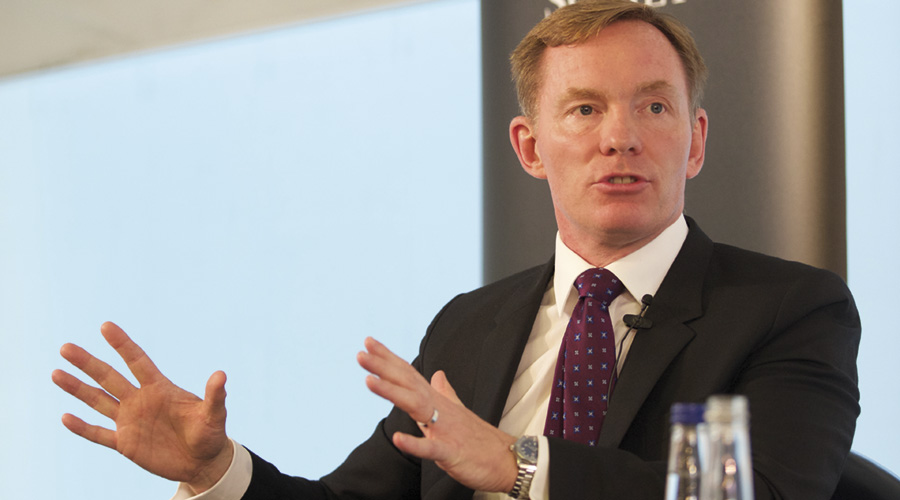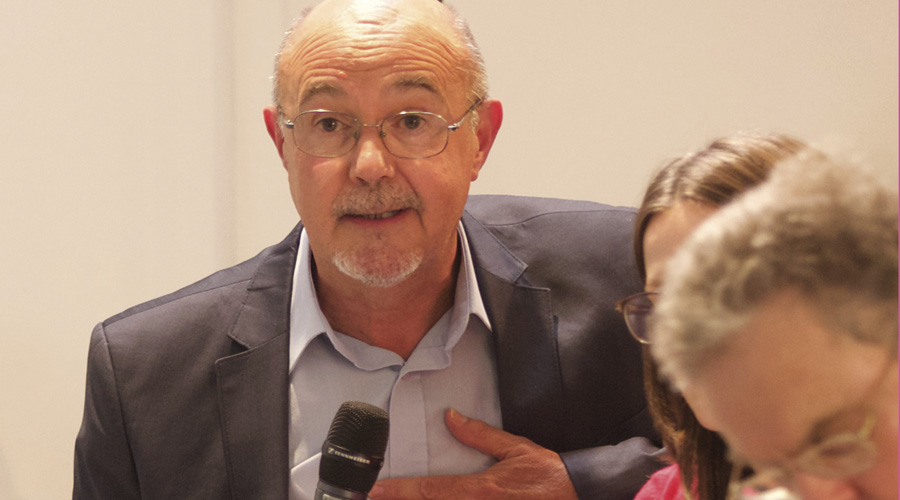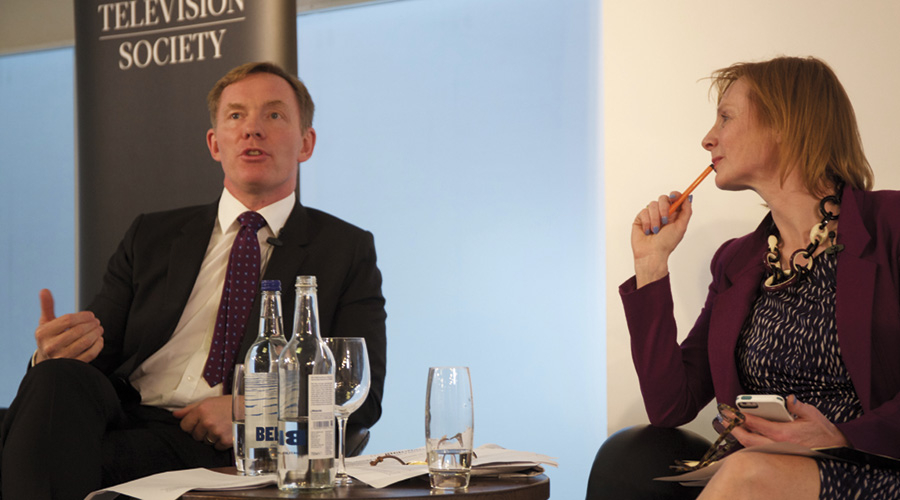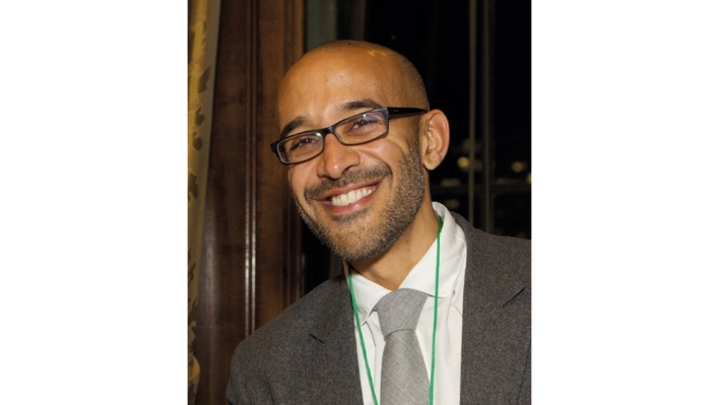Shadow culture secretary Chris Bryant warns that reducing the scale and scope of the BBC would severely damage the UK’s thriving creative industries
No one can now be in any serious doubt that the BBC is under siege. It started the day after the general election. Maybe, it’s the excitement of unexpectedly winning the election that has got to the Conservatives. Maybe, they’ve just had an overdose of testosterone.
But it is all the more important that we remind them that they do not carry the nation with them on this particular bully crusade.
With fixed-term parliaments, we should consider an 11-year Charter, to take the next renewal out of the heat of battle and well beyond the 2025 election.
That is not to say that I think the BBC doesn’t need reform. I remain a critical friend. I will, for instance, continue to criticise its record on diversity. The BBC cannot stand still; it has to embrace change and reform, because change is intrinsic to broadcasting.
We now watch audio-visual content in myriad ways – on tablets, on smartphones, through YouTube, Facebook and newspaper websites.
The remote control, the video cassette recorder, the hard-disk recorder and the iPlayer have successively changed our habits.
The new means of watching catch-up TV is adding audiences to must-watch shows, so that, far from disappearing from view, the shared national TV experience is still very much alive.

The BBC is the cornerstone of the creative industries in this country and the creative industries, in turn, are not just a pleasant added extra to the UK economy, a luxury if you like, they are the powerhouse of our future prosperity.
They represent one in 11 jobs, they bring in £76bn a year, they enhance our reputation overseas, they are intrinsic to our whole added-value economy and they have seen growth year on year well ahead of the rest of the economy.
The BBC co-operates with its commercial competitors, it commissions work from a vast range of production companies and it gives a platform for actors, directors, singers and artists, whose work will regularly take them from the very commercial to the remarkably niche.
The point is that the British creative industries cohere as a balanced ecology with the BBC at its heart. Only a madman would take an axe to the tallest tree in the middle of the forest and not expect to do serious harm to the whole of the forest.
The BBC doesn’t harm the wider industry, it fosters it: it creates a competition for quality; and its £3.7bn from the licence fee is the largest investment we make in the arts.
There are those who argue that the BBC is too big, and think the BBC should limit its ambition. The Secretary of State thinks that it is “debatable” whether the BBC should even make Strictly Come Dancing, let alone show it on Saturday night, and his Charter Renewal is apparently meant to be a root and branch review of the scope and scale of the BBC.
The corporation doubtless had a gun to its head and chose to get shot in the leg instead
John Birt was absolutely right to build a strong BBC internet presence. Rupert Murdoch was wrong to claim that it was illegal state aid. Audiences continue to move online. The BBC of 2027 can only manage thattransition with a strong internet presence.
And a BBC without sport would no more be a national broadcaster than a BBC without a serious evening news bulletin.
This goes to the heart of the issue. The golden thread that runs through the BBC is that everyone getssomething out of it because everyone has paid for it.
Yes, it’s the BBC’s mission to do something more than just chase audiences, and I think the BBC could take the foot off the cross-promotion pedal, but popular programming is what justifies the licence fee to the vast majority of my constituents.
It cannot just be posh TV at the public expense. A universal service that binds the nation together, the BBC can remain our cultural NHS.
That is why, although I remain open to the idea of the household levy, I believe the licence fee should remain for the full period of the Charter, with the CPI inflation rise, as promised.
I don’t think that there is anyone who now believes that the governance structures of the BBC are fit for purpose.
The events of the last two weeks, when the Chancellor mounted a stick-up job on the Director-General and the Chair of the Trust, prove the point. There was nobody independent enough of the BBC or of the Government who was prepared to utter a word of dissent.
The Chair of the Trust issued a letter after the event, objecting to the process, but, since it was exactly the same process as was used in 2010, you might have thought Trustees would have made clear their objections in advance and in public. The end result is that the Trust has proved itself a busted flush.
However able or independently minded the Chair might be – and it is not exactly an enviable position – she will always be caught in a double bind of either undermining the corporation or lip-syncing the Director-General.
Only a madman would take an axe to the tallest tree in the middle of the forest and not expect to do serious harm to the whole of the forest
I suggest that the BBC needs a proper unitary executive board, with a non-executive Chair and a majority of non-executive directors, who should be appointed for a fixed period so that they retain their independence.
Their focus should be not to act as a regulator of the BBC, but to carry the fiduciary responsibility of the corporation, ensuring that it is well run financially and creatively and within the law.
The Government should appoint the Chair after nomination hearings by the parliamentary select committee. It should be for the Chair and the non-executive directors to appoint the Director-General.
For many years, the BBC has fought off external regulation. It has argued that it is unique, a one-off – and so it is. I do not think, however, that this means that it should evade proper regulation and oversight. Parliament will, of course, maintain an important role representing the public. But the BBC should now be fully subject to the National Audit Office.
This leaves the question of regulation.
The Culture, Media and Sport Committee argued for a particular model, with this role split between Ofcom and a new Public Service Broadcasting Commission.
I would far prefer to see the full regulatory role adopted by Ofcom. I accept that some aspects of regulating the BBC would have to remain distinct from the regulation of other commercial broadcasters – not least because the BBC is not just a broadcaster.
But judgments on impartiality and the operation of electoral law apply identically. So could matters of taste and decency.
My fear is that, on this trajectory, if the Government engages in a deliberate attempt to limit the BBC in the Charter renewal, the BBC will be a national irrelevance by 2027, little more than a PBS channel.
Even if the BBC gets its CPI inflation rise as half-promised, it will still be shrinking, even as sports rights, movie rights and top-talent inflation are racing ahead. And we shall all be the poorer for it. Less British programming and fewer great British talents on our screens and winning Oscars.
Let’s be clear, if the Government aim is to cut the BBC down to size, it does not carry the nation with it in this particular bully crusade. And I will fight it every inch of the way. I hope that you will do, too. We have just 18 months.
This is an edited version of Chris Bryant’s speech to the RTS on 14 July (the full text is available here). ‘In conversation with Chris Bryant’ was an RTS early-evening event held at The Hospital Club, London, on 14 July. It was chaired by Anne McElvoy and the producers were Dan Brooke, Channel 4’s Director of Marketing and Communications, and Sue Robertson. Chris Bryant MP is Shadow Secretary of State for Culture, Media and Sport.
Question & answer
Q Anne McElvoy: Is there anything you think the BBC should change that it isn’t doing at the moment?
A Chris Bryant: We need a change of the licence fee to deal with the iPlayer, to recognise the change intechnology. The BBC should do more to cut down on senior pay. I don’t want to see cuts to services. And I think the BBC should do far more for diversity. When I said earlier that people want to see the world around them, I don’t mean that they only want to see the world around them, sometimes you want to be taken to another world on broadcast and in film.
Q Anne McElvoy: Why do the BBC and other broadcasters seem to have so much difficulty with diversity?
A Chris Bryant: The truth is that the broadcasting industry in this country (and the wider media) needs to find new audiences if it is going to have a strong commercial success in the future. To do so, it is going to have to change the set of faces on and behind the screen. It’s a depressing fact that, according to the available figures, the number of people from BAME communities working in the media inthe past seven years has fallen, rather than risen.
Q Anne McElvoy: What should the commissioners do to improve things?
A Chris Bryant: You have to have more [BAME and female] senior commissioners, you have to make sure there is money available for production, you have to be absolutely determined about it. In particular, people look to the national broadcaster that is funded by the licence-fee payer to look like the country that is paying for it. All too often, I just don’t think it does and sometimes when it does, it goes to the stereotype.
Q Anne McElvoy: Did the BBC give in too easily to the Government over having to pay for free TV licences for the over-75s?
A Chris Bryant: Yes, I think it did. It, doubtless, had a gun to its head and chose to get shot in the leg instead but, sometimes, when you’re shot in the leg it leads to the same terminal effect.
Q Anne McElvoy: What would a Labour government have done?
A Chris Bryant: A Labour government would not have held the BBC to pay for it. We introduced free TV licences for the over-75s and it was an express part of the deal that this would not be paid for by the BBC, but paid for by the tax-payer. You cannot turn the BBC into a subsidiary of the Department for Work and Pensions. [The BBC] will now have to make decisions about who gets free TV licences. I just don’t think that’s morally defensible.
Q Anne McElvoy: Which news do you watch at 10:00pm?
A Chris Bryant: I very rarely watch the news. My news feed is from Facebook and from Twitter. I’m rarelyhome in time for 10:00pm and then, when I do get home, I go to various news websites. Q Anne McElvoy: Does Labour still have a commitment to oppose the privatisation of Channel 4? A Chris Bryant: We still do. There’s an ecology here that works. Effortless British superiority really does irritate me, but the one thing where I think you can genuinely say we do something better than anyone else in the world, and every country would probably agree, is broadcasting.
Staying to fight
BBC Trustee and former BBC Controller of Editorial Policy Richard Ayre explained why he and his Trust colleagues did not threaten to resign over the Government’s decision to force the BBC to cover the cost of free TV licences for the over-75s.

Speaking from the floor, he said: ‘Yes, I listed the pros and cons. I didn’t [resign] because of the next six months. The BBC Trust and the Director-General are in a fight, a licence-fee battle.
‘If the BBC had no Trust – it takes [at least] six months to recruit trustees – there would be nobody for the next six months, when it is vital to fight for the Charter.
‘That is why we stayed. That is what we will do.’
He added: ‘Five years ago, I said that I was willing to resign [when George Osborne first argued that the BBC should pay for the over-75s’ free licences]. We had every indication that the coalition would backdown.’







